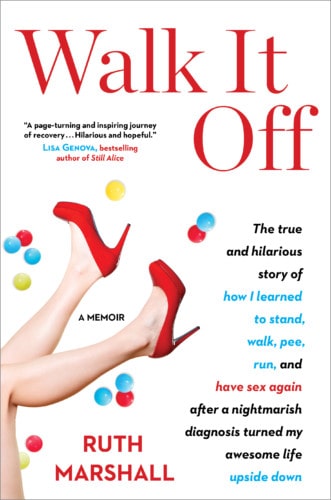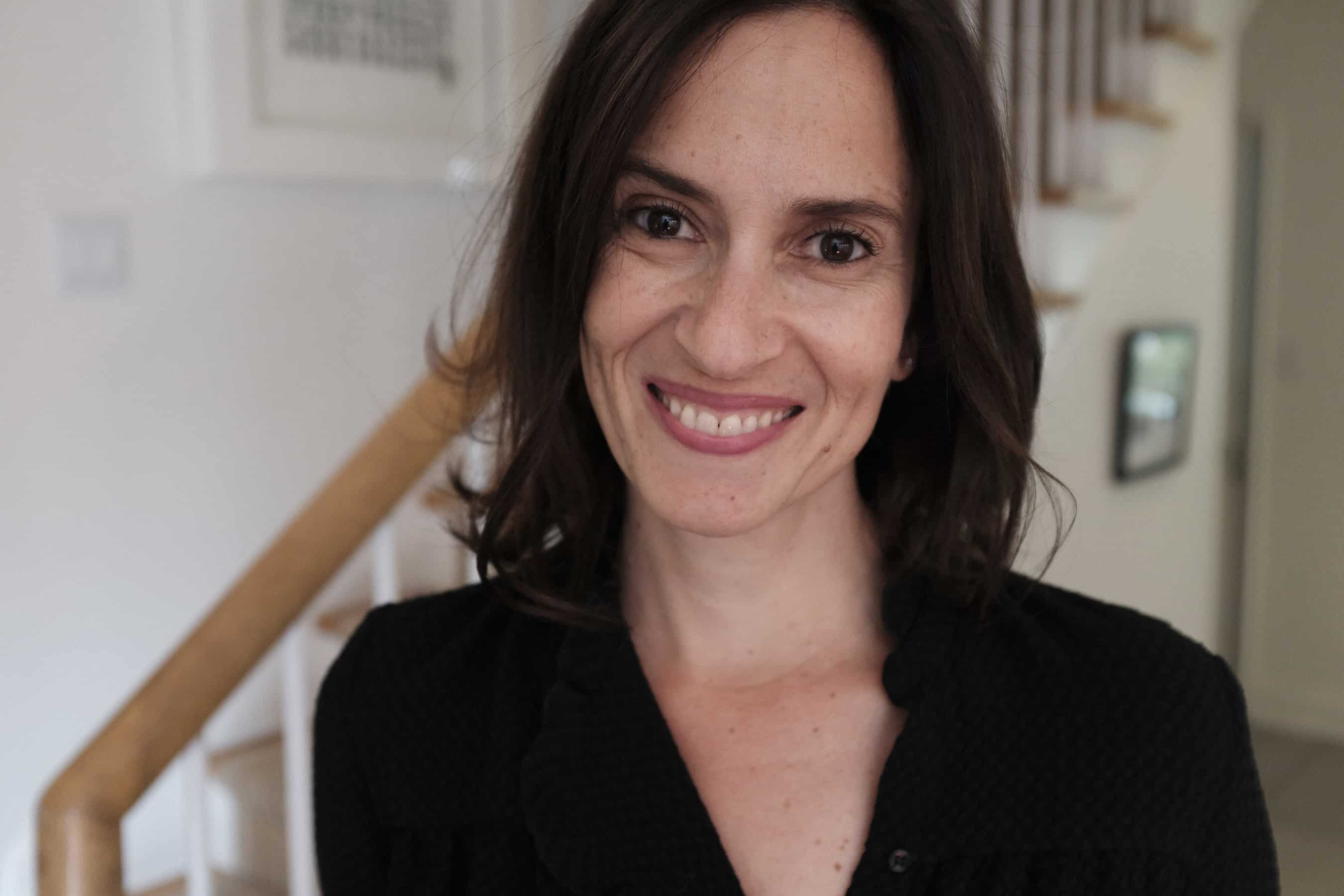Walk It Off is the brilliant first title in our Simon & Schuster Book Club. Through quick wit and disarming honesty, local Toronto author Ruth Marshall shares her harrowing journey about discovering a life-threatening tumour, losing her mobility, and the lessons she learned on the long, arduous road to recovery.
Her impressive debut novel is an absolute page turner and an important reminder that life can change in an instant, giving us a fresh perspective on the blessings, daily tasks and achievements that we so often take for granted.
Curious to find out how the frightening experience changed her outlook on life, we connected with Ruth to ask her some questions.
SDTC: How has your recovery journey shifted your perspective on life?
RM: I look at people slightly differently. When I see a gorgeous person–or any person, really–walking down the street I’ll wonder, Is everything alright there? Some issue going on physically that I can’t see? Because I’m pretty sure that I also read as “perfect” when I’m walking down the street, but I’m super aware of how my feet are moving and which leg is tingling more and whether I should have chosen a less buzzy-making pair of jeans to wear that day. But most significantly, I have slowed down–in a good way. I don’t multitask; I do one thing at a time. I no longer rush around like an idiot. I feel calmer.

What are the greatest discoveries you made since the journey with the tumour began?
That people are amazing. Like, as a human race, people are kind of great. There was literally not one person who disappointed me while I went through that mess. Right from the beginning when I couldn’t figure out why my feet felt so weird, there was not a single person who blew me off or made me feel silly for having concerns. And when I was in rehab, everyone from the doctors and nurses to my friends and family to waiters and parking attendants, were just so damn nice about everything!
I believe that when you see someone with an obvious issue that you can’t quite put your finger on, it gives you the opportunity to be sensitive. Am I sounding eye-rolly now? Listen, don’t get me wrong. I can be a moody little bitch sometimes, like if I’m on the phone with Apple for longer than three hours to fix some minor issue I will totally and completely lose my fucking mind (although I’m pretty good about apologizing in advance for the oncoming crazy), but for the most part, I’ve discovered that kindness is pretty much always the way to go.
How has daily life, be it routines or patterns, changed since going through this?
Not too drastically, believe it or not. I still wake up before everyone else in the house so I can have my coffee and toast with peanut butter and banana (often with bran sprinkled on top–digestive issues continue to plague me) in peace. I write every day now. I don’t act anymore, which means I don’t have to worry about auditioning. I don’t run anymore. I still do voice work. In the end, the biggest surprise is how much hasn’t changed.
What’s your advice to families facing the eye of the storm, where someone has been diagnosed with a life-threatening illness and the outcome is unknown?
That’s a really tough one to answer. Ideally, you are surrounded by people who love you, and those people follow your lead. For example: I was really scared when I found out I had a tumour and I knew that everyone around me was scared, too. We wouldn’t find out definitively that it wasn’t cancer until the tumour was biopsied, and there was also the risk that even if the tumour was successfully removed, I could be paralyzed from the waist down, but we were all very careful not to give voice to our worries.
So I suppose my advice would be as simple as dealing with each moment as it comes; while knowledge is power, too much knowledge can turn your world upside down, so try not to find out more than you can deal with in the moment. Never go to a doctor’s appointment alone. Give the people you love something concrete to do (like bring you dinner, walk your dog, look after your children for a little while, buy you a chocolate bar) because they really do want to be useful, and being useful feels much better than helplessness.
If there is a blessing to be found through your incredibly scary journey, what is it?
That at the end of the day, it’s the little things that make life good: coffee, those ridiculously soft blankets from Costco, heat, watching your kid swear while he tries to write a paper, lolling your feet in hot water, making your partner laugh by accident, reading a good book, being outside, always having something–no matter how small–to look forward to. Also, that there is joy to be found in even the shittiest of days. I honestly believe that if the worst had come to pass, and I wasn’t able to walk again, I still would have found a way to be happy.
What’s currently on your goal list?
The completion of my novel.




 Follow Us On Instagram
Follow Us On Instagram
